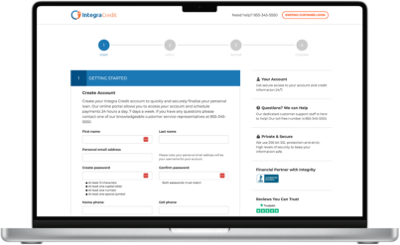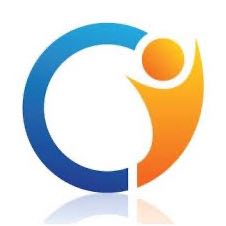Anyone with good sense knows that it’s wise to keep your money in a bank account. Whether for the security of your funds, the convenience, or the interest-earning potential, bank accounts offer many benefits.
However, it’s not quite so simple as just waltzing up to your local branch and depositing your money. There are several different types of bank accounts available to you, all of which serve different purposes. In this article, we’ll break down four types of bank accounts, and explore which one might be right for you.
Understanding the Four Primary Bank Account Types
Certain types of bank accounts are ideal for when you need quick access to your money, while others are designed to help you save as much as possible. Knowing which account is right for your financial goals is essential when managing your funds. Here are the four most common types of accounts:
Checking Account
A checking account is a near-universal type of deposit account. It generally:
- Holds funds you intend to use on daily expenses such as bills, grocery shopping, etc.
- Comes with a debit card for ease of making purchases or withdrawals.
- Can come with paper checks, or may offer them upon request.
Standard checking accounts are very common and may come with a monthly maintenance fee or a minimum balance requirement.
Savings Account
A savings account is a deposit account that may be used to hold money you don’t intend to spend immediately. Savings accounts tend to have a higher compound interest rate than checking accounts, though the interest rate and annual percentage yield (APY) do vary significantly from one bank to another.
Savings accounts differ from checking accounts in the following ways:
- Savings accounts don’t usually come with a debit or ATM card.
- You can’t normally write checks from a savings account.
- Federal Regulation D used to limit consumers to six withdrawals from a savings account each month. While this regulation was suspended during the COVID-19 pandemic, banks can still exact a fee if you exceed six withdrawals per month.
Essentially, a savings account is not supposed to facilitate ease of purchasing in the same way a checking account does. As the name makes clear, savings accounts are meant to help you save, not spend.
Money Market Account
A money market account (MMA) offers a middle ground between checking and savings accounts. Money market accounts typically:
- Allow for debit card access, paper checks, and also allow you to earn interest on your balance.
- Are (like savings accounts) subject to Regulation D
- Have higher initial deposit limits and minimum balance requirements.
A money market account is usually for those who want to earn interest on money that they don’t plan to spend immediately, but do plan to spend at some point. For example, this might be the ideal account if you are saving up for a large purchase like a car.
Certificate of Deposit
A certificate of deposit (CD) is an account where you leave your money for a set period — a maturity term — to earn a higher rate of interest on it. You can withdraw your initial deposit plus interest once the CD matures, or you can roll your new balance directly into a new CD.
The time it takes a CD to mature varies greatly. It could be as short as a month or as long as ten years or more. Usually longer terms mean higher APYs. However, withdrawing early usually incurs a penalty fee, so CDs aren’t great choices for those looking to store emergency funds they might need to withdraw before the maturity term ends.
What features make a great bank account?
While what type of bank account you open is a personal decision, there are some features that are always appealing:
- High interest rates
- Low or no fees
- Low or no minimum balance requirements
- Low or no initial deposit requirements
- Rewards or loyalty perks
- Secure online or mobile banking options
- Excellent customer service
- Ability to easily transfer money between accounts
Ideally, you’ll find a bank that offers excellent terms and customer service.
Which bank account type is right for you?
No one bank account is best for everyone. Rather, it’s important to establish and evaluate your financial goals. Are you looking to store your money somewhere with easy and convenient access? You’ll likely want a checking account. Do you have a lump sum that you don’t anticipate touching for a long time and want to earn interest on? A CD may get you the highest APY. If you’re torn between the balance of easy access and high interest, you should consider a savings account or a money market account.
Really think about what you need. Ask yourself:
- What minimum balance am I able to realistically maintain?
- How long can I go without needing access to this money?
- What am I using this money for? Weekly expenses? A large, one-time payment? Nothing at all for the foreseeable future?
- Will I need to use this money in an emergency?
When you start to define what you need from your money, it becomes easier to see which type of bank account will best support those goals.
FAQs
How much money should I have in an emergency fund?
There’s no definitive amount of money to keep in an emergency fund. Your target number depends on your specific circumstances, including your monthly income, financial stability, and dependents. A general rule is to have 3-6 months of expenses on hand at any moment. Check out our article on emergency funds for more details!
How much should I save each month?
While we wish that there was an easy, across-the-board answer to this question, the amount of money you save per month is a personal decision. For a more in-depth answer, check out our recent blog: How Much Money Should You Have in Savings?
Integra Credit Offers Assistance
If you need a loan to cover expenses while your saving goals are still in progress, Integra is ready to help you out. Apply today or contact us with inquiries.
Apply in minutes, quickly & securely
- Complete an online application
- Receive a decision quickly
- Review and sign the agreement
- Get cash directly into your bank account






